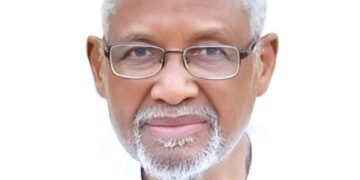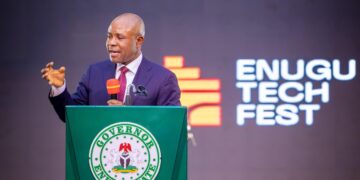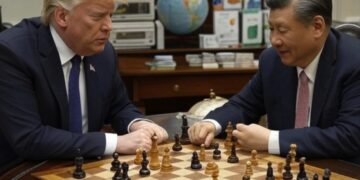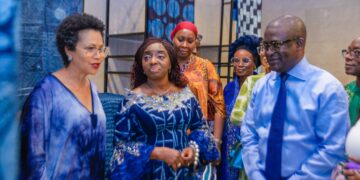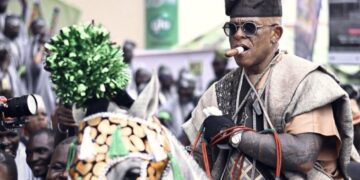The incident, unfolding over the past 48 hours, has reignited debates about free speech, youth frustration, and the government’s response to dissent amid Nigeria’s escalating economic crisis.
A Cry Heard Nationwide
Ms Ushie Uguamaye, posting under the handle @talktoraye, uploaded the video on March 14, 2025, venting her exasperation over the soaring cost of living. In a tearful outburst, she declared, “I don’t know if there’s any president as terrible as you,” directly addressing Tinubu. She pointed to the ballooning prices of essentials—highlighting a crate of eggs now costing ₦6,500, up from ₦800 in years past—and described Lagos as “stinking” and unlivable for corps members like her, who earn just ₦33,000 monthly. “This is my first time away from home, and I can’t survive,” she lamented.
The video exploded across TikTok and X, resonating with Nigerians—especially Gen Z—struggling under inflation at a 28-year high and a weakened naira. President Tinubu’s policies, such as the 2023 fuel subsidy removal, have been hailed by some as bold reforms but lambasted by many for deepening hardship without swift relief. For Ushie, a young woman navigating Lagos’ chaos on a meager allowance, the disconnect between policy and reality fueled her viral plea.
Threats and Tears
The saga took a darker turn on March 15 when Ushie shared a follow-up video, visibly shaken, alleging that NYSC staff in Lagos had threatened her. Screenshots posted to her Instagram (@iamraye__) revealed messages purportedly from officials attempting to locate her and demanding she retract her statements. In one exchange, an official reportedly asked, “Are you normal?”—a phrase that has since sparked widespread outrage online. In her emotional update, Ushie pleaded, “I’m just a corper trying to survive. Why are they coming after me?”
The NYSC has yet to issue an official statement, but the allegations recall a 2022 warning from then-Director-General Major-General Shuaibu Ibrahim, who cautioned corps members against criticizing government policies online. The perceived intimidation has drawn fierce backlash. Comedian Mr. Macaroni tweeted, “You cannot threaten or victimize Ushie Uguamaye for expressing her view on the president’s performance. She’s a citizen with rights!” X users echoed this sentiment, with one writing, “Threatening her only proves she’s right about Tinubu.”
Gen Z’s Breaking Point
Ushie’s outburst underscores a broader trend: Nigeria’s youth, particularly Gen Z, are no longer staying silent. Comprising over 60% of the population, this demographic has turned platforms like TikTok and X into tools for activism, reminiscent of the #EndSARS movement and Kenya’s recent youth-led protests. Her raw honesty—calling Tinubu’s leadership “terrible” a “fact, not an insult,” as one X user put it—mirrors the frustrations of millions facing economic stagnation and unkept promises.
For stakeholders, Ushie’s story is a wake-up call. Tinubu’s “Renewed Hope” agenda, launched in 2023, promised economic revitalization and youth empowerment. Yet, with corps members still earning ₦33,000—despite rumors of a raise to ₦77,000—and basic goods slipping out of reach, that hope feels elusive. Political analyst Dr. Aisha Bello told Stakeholders Magazine, “The government risks alienating an entire generation if it responds to Ushie’s cries with threats instead of solutions.”
A Test for NYSC and Tinubu
The NYSC, founded in 1973 to foster unity and development, now faces scrutiny over its role. Is it a platform for youth growth or a mechanism to enforce compliance? The alleged threats against Ushie suggest the latter, clashing with Nigeria’s democratic ideals and the constitutional right to free expression. Meanwhile, Tinubu’s administration confronts a public relations crisis: silencing a corps member like Ushie only amplifies her message.
As this story unfolds, it’s a clarion call for dialogue. The government could seize this moment to engage Gen Z, address their economic struggles, and rebuild trust—starting with voices like Ushie Uguamaye’s. For the NYSC, it’s a chance to reaffirm its mission without stifling dissent. For Nigeria’s youth, it’s proof of their power—and the risks they face in wielding it.
President Tinubu’s legacy may hinge on his response to this storm. Will he bridge the gap with a generation on the edge, or solidify their view of him as the “terrible president” Ushie decries? The nation watches—and waits.
ReplyForward |







